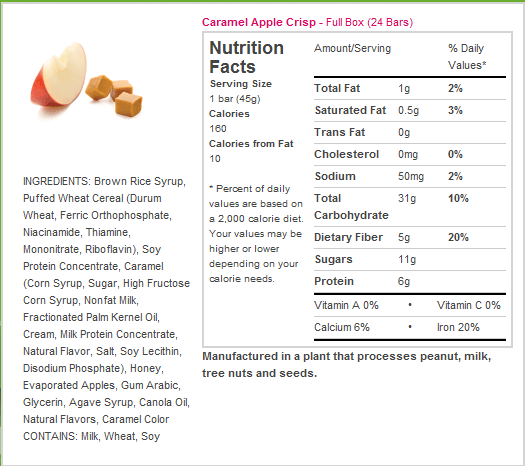I noticed at my local convenience store a nutrition bar I hadn't seen before -- FullBar. I was intrigued by the concepts of the "science of fullness", which is documented on their site:
http://www.fullbar.com/science-of-fullness/
- Fullbar is inspired by the principles of weight-loss surgery. When a person undergoes bariatric or lap band surgery, a device is installed to constrict the stomach. The result is that when food is ingested, it stretches out the upper part of the stomach, telling the brain that you're full.
- When you use fullbar products, your stomach fills up on less food, causing you to feel satisfied with smaller amounts of food, so you consume fewer calories during meals, helping you lose weight.
- fullbar works best when consumed 30 minutes before lunch and dinner or as a substitute for your daily snack. Make it part of your everyday routine, and fill up on any all-natural, fullbar product and a 16-ounce glass of water.
- Before meals really notice your level of fullness. This is key. Assign your hunger a number from 1-10. Then when planning your meal, monitor how much food you're making and prepare a smaller portion than usual. Don't worry - even if it's only a fraction of what you'd normally eat, you'll still feel full.
- As you’re eating, pay close attention to how your hunger lessens as you eat. Stop when you become satisfied, not when you become stuffed.
I have some questions about this.
Are they full of crap? I understand how stomach reduction surgery works, but is there other science corroborating this as a workable diet principle?
Are there other diets that exploit this "make the stomach feel extra full on relatively low-calorie but stomach expanding foods before eating full meals" principle?
If #2 is yes, what types of inexpensive, tasty foods can be used to exploit this principle.. other than buying FullBars of course. :)
